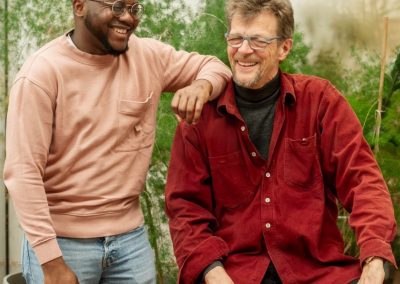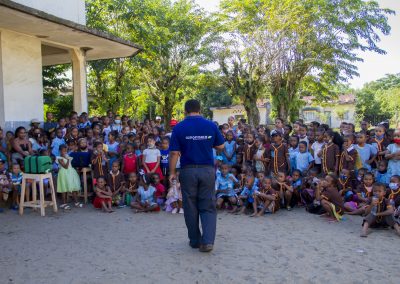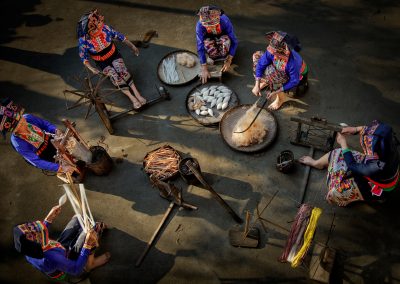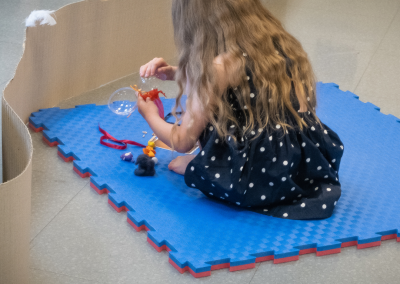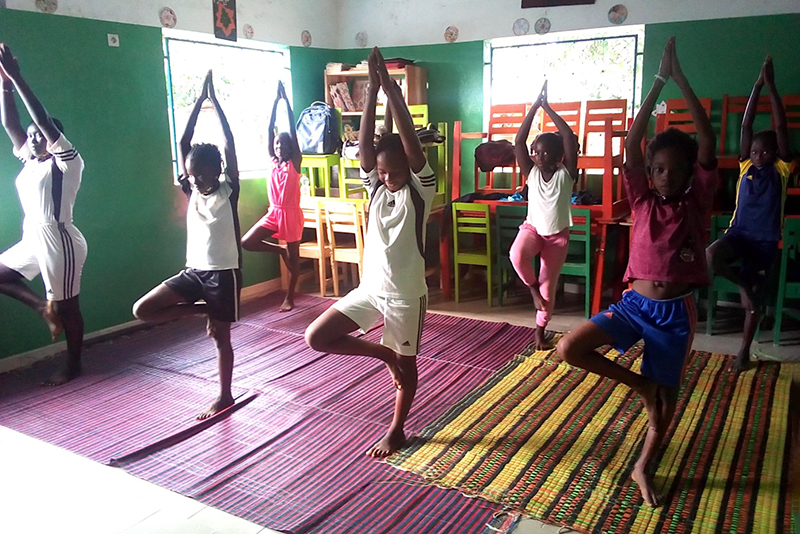
Futur au présent
La Maison de l’Éducation (MDE) – House For Education – for the schooling and personal development of girls in early labour situations.
Locations of impact : Sénégal, Ziguinchor (Casamance region)
Grant : 5000€
Project supported in 2021-2022
The Maison de l’Éducation (MDE) is a project aimed at combating early work and school drop-out among girls aged 6 to 14 living in the popular Kandé district of Ziguinchor in Casamance. Coming from vulnerable families, these girls generally leave school very early to work and contribute to their families’ income.
In order to break with this logic of reproducing the mechanisms of poverty and to offer them a more promising future, the Maison de l’Éducation provides, in liaison and agreement with the families: enrolment or re-enrolment in public school with all costs covered, support for schooling, individual and family psychosocial support, as well as participation in a certain number of socio-cultural and sporting activities that contribute to their personal development and empowerment (theatre, cinema, dance, yoga, oral expression, use of digital technology, etc.). Health monitoring is also provided.
As a complement to the public school, the MDE’s team of teachers and social workers welcomes 120 girls every day during extracurricular activities.
Defending a global approach to the fight against poverty and child protection, the MDE project also offers support to the families of the girls accompanied in terms of creating income-generating activities and/or improving, when necessary, their living conditions (small-scale renovation of living spaces, access to electricity, etc.). Through this approach, the project intends to contribute to the improvement of the socio-economic situation of the families and to the sustainable enrolment of the girls in their education.
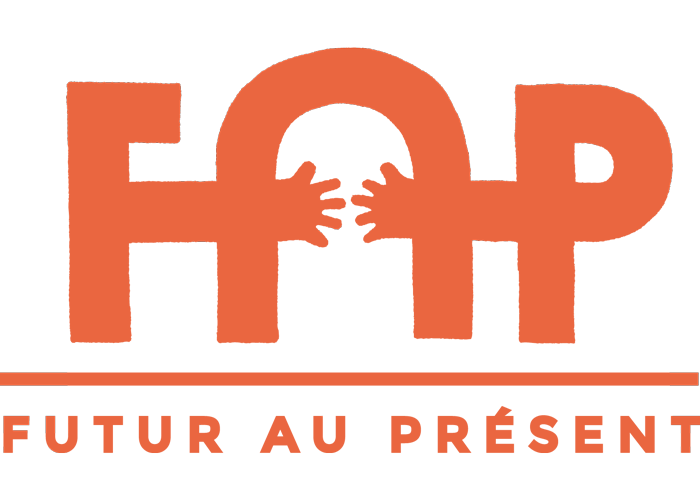
the organisation carrying the project
Futur Au Présent – International (FAP), a Franco-Senegalese non-profit organisation created in 2012, is dedicated to the fight against poverty and inequality. Its social programmes are prepared through research and co-financed in part by economic development activities.
It now aims to replicate its work in other territories in Africa and Europe, in order to fight poverty using an approach that takes into account the global dimension of the phenomenon.
Poverty and inequality are multidimensional issues: a child’s future, for example, depends on regular schooling, regular schooling depends on his or her health, and his or her health depends on the housing where he or she lives. Each dimension affects the others. That is why FAP takes a holistic approach in its programmes, working simultaneously on these various areas.
In Senegal, in addition to the MDE project, FAP implements the following programmes: a project on the employability and training of young people in Casamance aims to train and place in apprenticeships young people who have dropped out of school and come from the most disadvantaged populations; a project for social support and socio-economic integration of prisoners operates in 6 Senegalese prisons and correctional institutions, particularly with women and minors.
In France, and thanks to its dual identity, FAP is developing programmes aimed at addressing issues that require joint responses between the North and the South, such as sustainable development and migration. The current projects are as follows: the SNAP project addresses sustainable development by linking French and Senegalese classes in order to encourage exchanges on environmental inequalities while promoting international solidarity; the Passer’Aile project is structured around the issue of migration. It aims to strengthen the social support of West African Unaccompanied Minors (UAMs) through cooperation and the exchange of practices between West African and French social actors.
how are donations used
In a project such as the MDE, donations and subsidies contribute to the financing of the following activities:
- Daily supervision by teachers and social educators
- Enrolment in public schools
- Purchase of school supplies
- The organisation of cultural, sporting and artistic activities
- Purchase of educational tools and material
- Health and food expenses
- Expenses related to the improvement of living conditions and housing for families
key figures
- 120 girls accompanied within the MDE structure.
- 97% of the 120 girls are still enrolled at the MDE at the end of each school year
- 100% of the girls have gained self-confidence and are able to express themselves and debate
- 90% of the parents are aware of the virtues of education and are active in the empowerment of their child.
- 100% of the girls supported understand their rights as a child and as a woman

